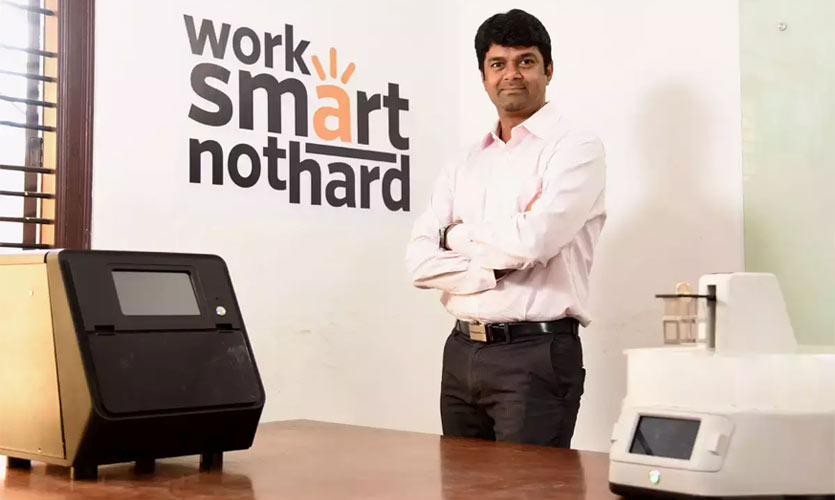Indians have grown up in an atmosphere where women’s health issues are often considered taboo, and public debates surrounding such practices have often been shunned. For example, with over 355 million menstruating females, only 36 percent use sanitary napkins, while the rest have to resort to old rags, husk, ash, leaves, mud and soil and other life-threatening materials to manage their flows.
The resistance to spreading awareness and the association of women’s health with shame has caused a negative impact on the overall state of women’s healthcare in India. Many women are unaware of the various irregularities their bodies go through and notice them only once they reach a critical, harmful stage. The stigma surrounding the discussion of health issues in public forums has contributed to this.
The fight for equality among Indian women continues to be an uphill battle even in the 21st century. The pandemic has further exacerbated women’s inequality and highlighted the need for a robust healthcare system for women. The new wave of FemTech startups is a fight in the right direction as it has helped bring women’s health issues to the forefront, which is crucial if India wants to overcome its stigmas.
Defining FemTech And Its Potential
FemTech refers to the various softwares, diagnostics, products and services that use technology to support women’s health. Coined by Ida Tin, the founder of Clue – a period and ovulation tracking app – she created the new sector quite accidentally when pitching her idea to investors. Since then there have been numerous such apps entering the market globally, catering various services that tackle women’s issues and needs such as access to menstruation care products and birth control, menopause, chronic conditions and hormonal disorders, pelvic health, pregnancy and post-pregnancy care, breast feeding, and general healthcare.
According to a March 2020 report by Frost & Sullivan, a research and strategy consultancy, revenue from FemTech is expected to reach $1.1 billion by 2024. The pandemic has caused a boost in health techs. The number of FemTech startups globally has increased from 221 in 2019 to 318 in 2020. According to PitchBook Data, the FemTech industry generated $820.6 million in global revenue and received $592 million in venture capital investments in 2019. However, in 2021, out of these startups, only 41 originated in south-eastern Asia. A majority of them are from North America and Europe.
As per Inc42, investors in India have shown confidence in FemTech startups, with investments of almost $123 million in 2019. These startups have slowly started embracing innovation and technology in the sector by tackling women’s issues not limited to just menstrual hygiene but also tackling issues like PolyCystic Ovary Syndrome (PCOS), diabetes, infertility, breast cancer, cardiovascular diseases and so on.
Innovation And The Challenges Ahead
India’s Bengaluru-based startup Niramai Health Analytix uses artificial intelligence driven solutions that help detect cancer and growth abnormalities in women. Founded by Geetha Manjunath and Nidhi Mathur in 2016, the company uses Thermalytix – a breakthrough, non-invasive, radiation-free, and low-cost breast cancer screening technology. They have managed to raise a total funding of $14 million so far and start home-based screening during the pandemic. The startup has also managed to gain research funding from a UK-based development finance institution and impact investor CDC Group. Bill and Melinda Gates are also known to have backed the startup.
PCOS, a health condition with symptoms like irregular periods, weight gain, and infertility, among others, affects one in five women in India, and is often an issue that is brushed under the carpet. Ava, another Bengaluru-based startup that was founded in 2019 by Evelyn Immanuel, helps remove the stigma surrounding PCOS and encourages women to adopt a disciplined and holistic approach by offering curated programs and personalised plans.
CervAstra by Aindra is an AI-powered medtech company that detects cervical cancer. It analyses pap smear samples to detect abnormalities in a short turnaround time. The instruments used for detection are portable and enable women to walk into the nearest primary health centre, get screened and receive reports.
The FemTech industry in India is still a nascent market and the challenges faced by many of these startups involve the reluctance of investors (mostly men), which stems from the belief that the sector is still a small and niche market with a low return on investment. Male investors also fail to understand and relate to women’s needs and solutions, which further adds to the underfunding faced by the sector despite its potential. Lack of awareness is also an important issue. Encouraging the adoption of these applications in conjunction with conventional therapies by healthcare professionals has the ability to take FemTech in India to the next level.
“India still has a lot of room for development to create awareness, affordability, and accessibility to cater to specific women’s health issues. FemTech in India needs to spread its wings from just period care to advanced technologies that can make life better for women,” says Suchismita Das, healthcare and life sciences research analyst at Frost & Sullivan.
Read more: The Resilience Of Indian Startups Amid COVID-19
FemTech companies were set up with the aim to disrupt taboos surrounding female health, focusing on raising awareness and educating women to protect and care for their own bodies. With the largely under-served women’s population in India, it is important that future entrepreneurs of FemTech tackle this imbalanced development landscape.
The next phase of FemTechs must realise that there is huge potential in serving rural women. The vision must involve democratising access to quality healthcare and security, as well as removing social stigma by leveraging technology to solve the issue of equal access to facilities and services for women.









